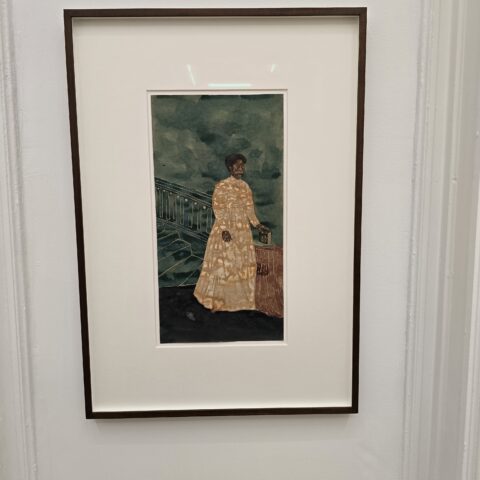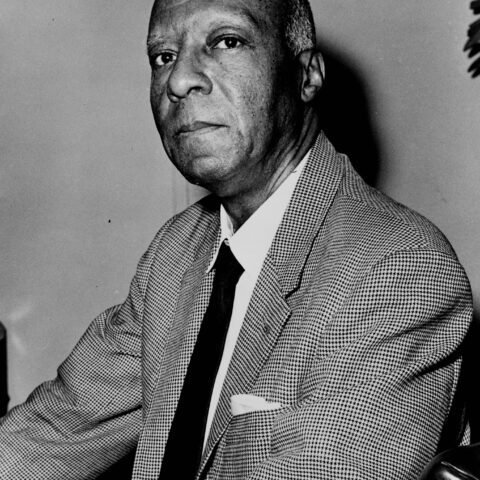COMICAL BORIS BESTING RED KEN
By The Political Team
Monday, March 24, 2008.
For the first time in his mayoral career, Ken Livingstone, the incumbent Labour Party Mayor of London is facing a stiff competition from an opponent.
Boris Johnson is a seasoned journalist, editor and the Tory MP for Henley-On-Thames. Famous for guest-hosting the popular BBC quiz show, Have I Got News For You and for unsavoury and racist remarks about black people.
The latest YouGov opinion poll, released on March 14, 2008, shows Johnson leading by 12 percentage points at 49%. Livingstone is on 37%, while Brian Paddick, a former commander in the London Metropoltan Police (MET) and the Liberal Democratic Party candidate is on 12%.
Livingstone, known to many in the media as Red Ken, is also facing opposition to his candidacy from some London-based media outfits for alleged corruption, which has resulted in the resignation of Lee Jasper, Livingstone’s closest City Hall black ally.
The Livingstone camp denied corruption and played down the YouGov findings, saying the mayor always did badly in YouGov surveys, adding that the latest internal Labour party polling had put the mayor narrowly in front.
The underlying message of Livingstone’s campaign is that Johnson will wreck all that has been achieved in his eight years as the capital’s first directly-elected mayor and his vision of progress for the next four years.
An earlier survey shows Livingstone leading Johnson by two percentage points. The Ipsos Mori poll of 808 adults living in London, aged 18+, conducted by telephone between 8-12 February 2008, put Livingstone at 48% and Johnson at 46%.
Meanwhile, Johnson, who has described himself as a “one man melting pot” – he claims to be descended from a Russian slave while his great grandfather was briefly interior minister in the last Ottoman Turk government – has since apologised for the remarks he made about black people.
The idea of directly elected mayors was decided upon by the British Parliament in 2000, as part of the Local Government Bill.
The first mayoral election was held in May of that year, which Livingstone won handily as an independent. At the end of his first four-year term, he won another term in June 2004 as a Labour Party candidate.
In all, 13 candidates have so far expressed their intention to contest the May 1 poll, which will see the winner control the city’s £11-billion budget.
Ken Livingstone
Ken Livingstone vs Boris Johnson
What does the Mayor do?
The Mayor’s role as the executive of the strategic authority for London is to promote economic development and wealth creation, social development and the improvement of the environment. The Mayor also has a number of other duties in relation to culture and tourism, including responsibility for Trafalgar Square and Parliament Square.
What can the Mayor do?
The Mayor has a range of specific powers and duties, and a general power to do anything that will promote economic and social development, and environmental improvement, in London. Before using many of his powers the Mayor must consult with Londoners, and in all cases, the Mayor must promote equality of opportunity.
On 30 November 2005, the Office of the Deputy Prime Minister launched its consultation paper on the review of powers for the Mayor and Greater London Authority.
The consultation ran until 22 February 2006.
A second piece of legislation, the Greater London Authority Act 2007 received Royal Assent in October 2007. The GLA Act 2007 supplements and updates the GLA Act 1999 and grants the Mayor of London and the London Assembly new powers.
Setting strategies for London
The Mayor sets out plans and policies for London covering transport, planning and development, economic development and regeneration, culture, and a range of environmental issues including biodiversity, ambient noise, waste disposal and air quality.
These individual plans fit together to help deliver the Mayor’s policies. Between them, these plans must also contribute to sustainable development and the health of Londoners.
Funding services for London
The Mayor sets the annual budget for:
the Greater London Authority and the Metropolitan Police, who provide policing in the capital, under the oversight of the Metropolitan Police Authority.
The Mayor is also responsible for Transport for London, which in turn is responsible for London’s buses and the Underground, manages river services and some light rail services, maintains London’s main roads and regulates London’s licensed taxi and private hire services
In addition to this, the Mayor sets the budget for the London Development Agency, which works with businesses to sustain and improve London’s role as a business centre, while increasing economic opportunity for all Londoners
London Fire Brigade, which responds to fires and promotes fire prevention, under the oversight of London Fire and Emergency Planning Authority.
Appointing people for London
The Mayor can make a number of important appointments. While staff in the Greater London Authority are appointed by the London Assembly, the Mayor appoints the boards of Transport for London and the London Development Agency. He also chairs Transport for London, and has led the recruitment of its senior managers.
The Police and Fire Authorities are independent bodies, but the Mayor appoints some members of the Police Authority, following nominations by the London Assembly. He also appoints the Fire Authority, following nominations by the London Assembly and London boroughs.
A Cultural Strategy Group, now superseded by the London Cultural Consortium was appointed by the Mayor to develop the Mayor’s cultural strategy, which covers everything from sport, to architectural heritage, to performing arts in London.
The boards directly appointed by the Mayor were chosen on merit, but also broadly mirror London in their representation of black and Asian people, women, and people with disabilities.
Other powers and duties
The Mayor’s Spatial Development Strategy – the London Plan – sets out the policies for new building and land use in London. Major planning applications have to be referred to the Mayor by London boroughs, and he can direct refusal of those that are not in accordance with the GLA’s policies. The Mayor also has control over the management of two of London’s most important public spaces, Trafalgar and Parliament Squares.
Deputy Mayor
The Mayor appoints a member of the London Assembly to be Deputy Mayor. Nicky Gavron was the first Deputy Mayor, from May 2000 until June 2003. Jenny Jones held the post until the elections in June 2004. Nicky Gavron is currently Deputy Mayor.
Term of appointment and next election
The Mayor is elected for a fixed term of four years. The next election of Mayor and Assembly will be in May 1, 2008.
Main Picture: City Hall, London.
With thanks to the Government of London.
Please e-mail comments to comments@thenewblackmagazine.com
London Mayoral Election Guide And Scorecard





